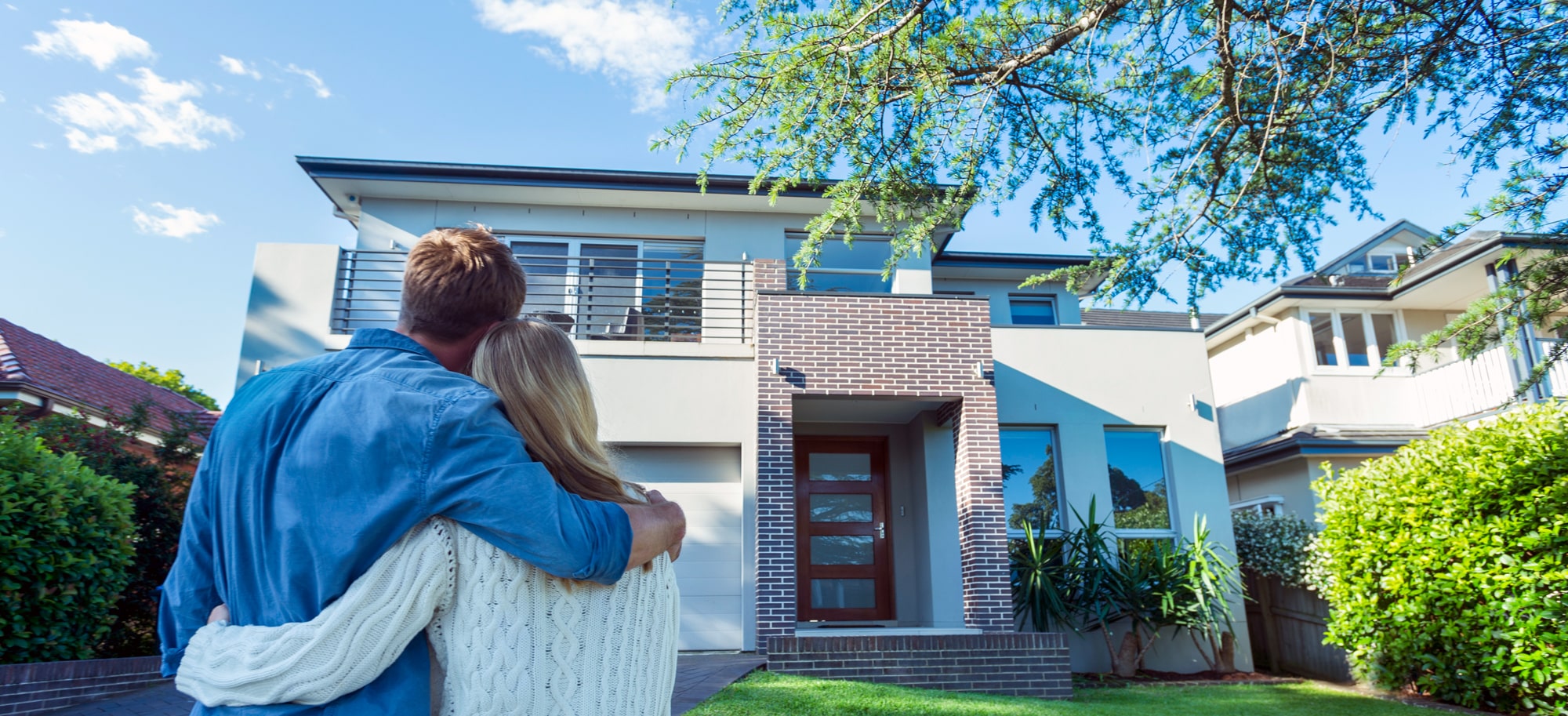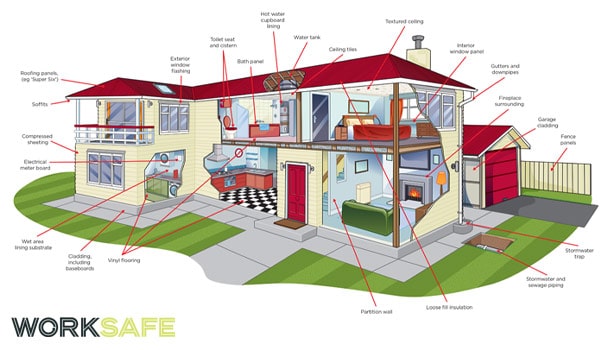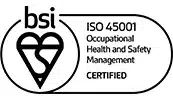
This is a good question. After all, Asbestos is dangerous and so you want to make certain the house you’re buying is safe to live in, especially if you’re looking at undertaking alterations that may disturb any Asbestos that is part of the existing structure.
To answer the question, you must first consider the year the house was constructed. If it was built prior to 1990, there is a chance that it may contain Asbestos. For about 50 years prior to 1990, Asbestos had been used in many building elements because it was durable, fire and water resistant, and a great insulator.
So, it is a good idea, especially if you are contemplating renovations to the property, to have it checked for Asbestos by a professional. These professionals are generally called Surveyors and accredited Asbestos testing laboratories generally offer this service also. If Asbestos is found, it will usually have to be removed by a licensed Asbestos removal company which will add to the expense of any renovation cost.
Let’s look a little more closely at why Asbestos inspection and testing is a good idea by answering four Asbestos FAQs:
- Where might Asbestos be in the house I’m buying?
- What is the health risk of Asbestos?
- What should I do if the property I’m buying might have Asbestos?
- What if I’m selling my home, should I have it tested for Asbestos?

Where might Asbestos be in the house I’m buying?
Asbestos is a naturally occurring mineral that has attributes which make it useful in many applications related to building. So much so that it can be found in:
- Walls – in particular wall claddings such as Fibrolite and some artificial brick claddings. Also plaster renders that have been applied over a substrate or block and
- Roofs – many roofing materials including Fibrolite that appears to look like normal longrun iron and cement tiles. It can also be found in the common decromastic tiles with the stone chip appearance and also what appears to be rubber sheet membranes.
- Insulation – some early forms of thermal insulation and insulating board contain Asbestos. Also what appears to be a white rope that is often found around or near hot water pipes and hot water cylinders.
- Pipes – many underground pipes and downpipes were manufactured with Asbestos because of its durability and long lifespan along with external gutters that capture roof off run.
- Ceilings – typically the textured and often glittery looking ones.
- Exterior soffits – must also be taken into consideration.
- Flooring – many early linoleums contain Asbestos and should be checked before removal. This includes the old square and often colourful tiles.
- Fabrics – believe it or not, some fabrics, including curtains, contain Asbestos, especially those that are heat-resistant.
- Fillers and sealants – including adhesives used for flooring and construction and even window putty.
- Air conditioning systems – not so much the conditioner itself, but the ducting used are also possible Asbestos carriers.
If a renovation is to take place at a property where Asbestos is suspected, it is wise, to check for soil contamination that may be the result of construction refuse or discarded materials during previous renovations or the original installation.
What is the health risk of Asbestos?
The mineral Asbestos is made up of tiny fibres. These fibres are very strong and are highly resistant to heat, fire, chemicals and wear making them ideal for building materials. Unfortunately, these fibres can also be an extreme health hazard.
Left intact and undisturbed – bonded Asbestos – the danger is minimal. However, if the Asbestos becomes ‘friable,’ that is, it is no longer tightly bonded, the tiny fibres within it become airborne. When breathed in, these fibres can lodge in a person’s lungs and cause an Asbestos related condition such as Asbestosis or lung cancer.
Sometimes people ask, “What is a safe level of Asbestos to breathe?” The answer is that there is no safe level of Asbestos exposure. While continued exposure poses a greater risk, there have been cases of people suffering an Asbestos-related disease after only brief exposure to fibres.
What should I do if the property I’m buying might have Asbestos?
This brings us back to our original question, “Should I get an Asbestos test on the house I’m buying?” The answer is, if you have any suspicion that a property you intend to purchase may have Asbestos as part of its construction, you should think seriously about asking an Asbestos testing and removal company to inspect the property and test any suspect materials. Particularly if the house was built prior to 1990.
It must be noted here that accurate identification of Asbestos needs to be carried out by a fully licensed Asbestos inspection and testing company. Asbestos is found in a wide range of materials and is difficult to identify with certainty without proper Asbestos testing. For instance, some linoleums contain Asbestos, but the untrained eye would find it difficult to distinguish between those that do and those that don’t. Even an expert will usually send a sample to be tested to be certain.
By having a property inspected in this way, you will know for certain if and where Asbestos is located. This means, if you are contemplating renovations or demolition in the future, you have been forewarned about the hazard and the possibility of having to pay for Asbestos removal.
What if I’m selling my home, should I have it tested for Asbestos?
Many property buyers are aware of the possibility of the presence of Asbestos in older homes and buildings. Having an Asbestos inspection and testing prior to selling can become a positive selling point especially if it is found that the property is Asbestos free or, if there is Asbestos present, that it is non-friable, that is, intact and undamaged.
For more information about specialist Asbestos inspection and testing and Asbestos removal in Auckland contact the experienced Conqra Enviro team.



